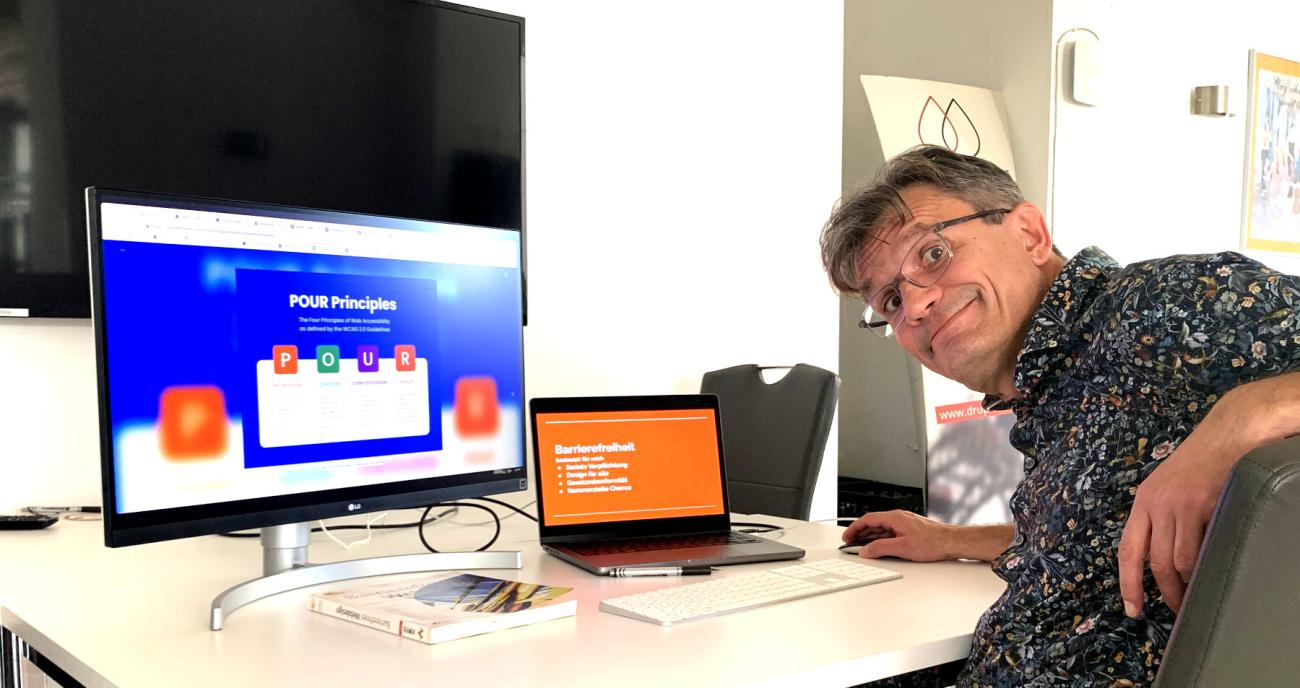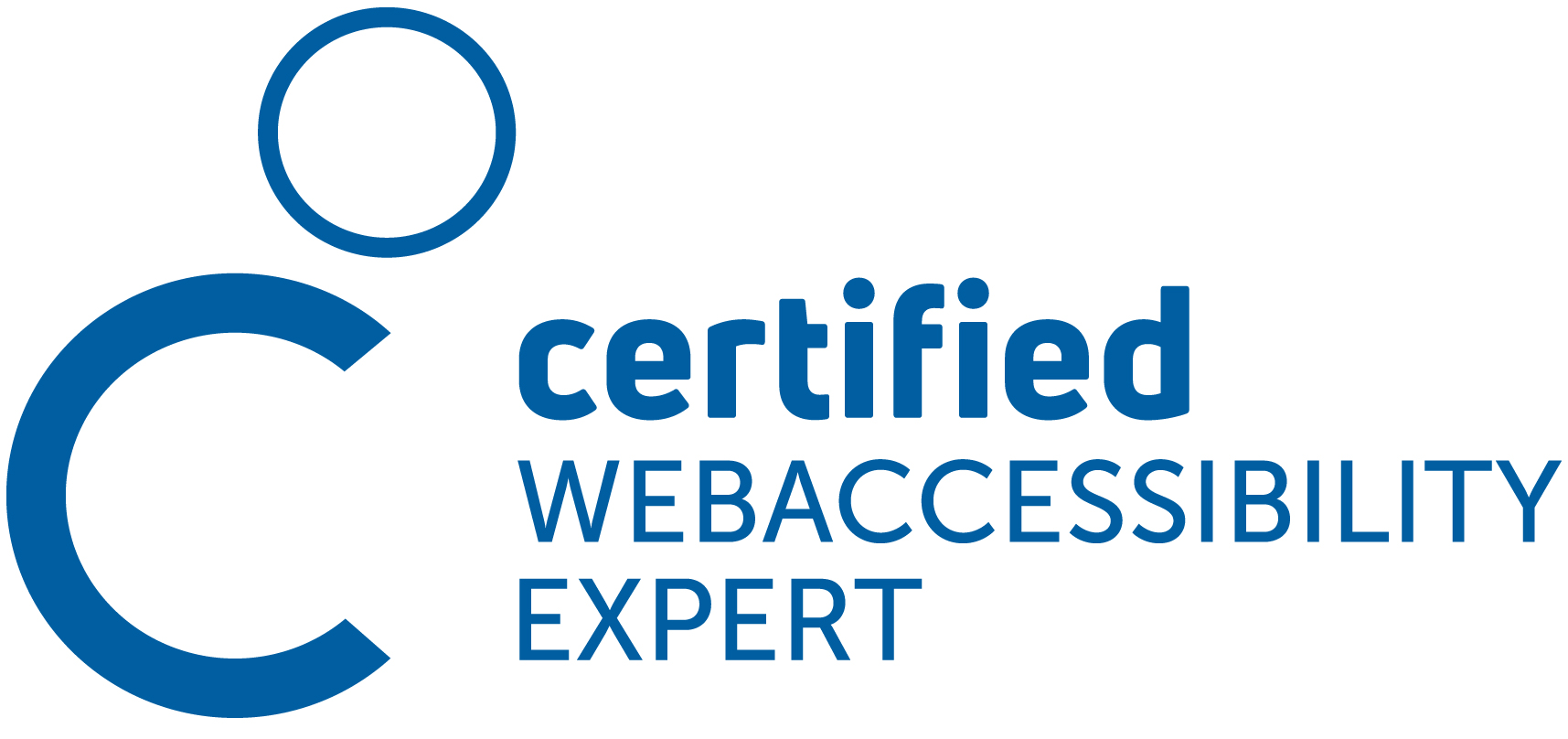Thomas is a Certified Web Accessibility Expert

Since yesterday, September 26, 2023, it's official: Thomas has successfully completed his professional discussion and can now call himself a "Certified Web Accessibility Expert"!

This was preceded by a complex process: after a course at incite, the UBIT Academy, two different web projects had to be described and evaluated for their accessibility, various registration forms and training confirmations had to be submitted, the resume adapted, customer references obtained, and the motivation outlined as to why web accessibility is a very important topic for us. This demanding journey culminated in a successful expert discussion on Tuesday.
What is "Digital Accessibility"?
Digital accessibility refers to the fact that digital content, services, and products (such as websites, mobile apps, documents like Word or PDF, and other digital technologies) are accessible and usable for all people, including those with physical, sensory, cognitive, or other disabilities.
Some key aspects of digital accessibility are:
Visual Accessibility:
Content should be accessible to people with visual impairments, such as blindness or limited vision. This can be achieved through screen reader-compatible content, magnification functions, or high-contrast displays.Auditory Accessibility:
People with hearing impairments should be able to use digital content. Subtitles for videos, transcripts for audio content, or translations into sign language are examples of this.Motor Accessibility:
Navigation and operation of digital content should also be possible for people with limited motor skills or movement abilities, e.g., through keyboard access or voice control.Cognitive Accessibility:
Contents should be designed in such a way that they can also be easily understood and used by individuals with cognitive or neurological impairments, such as learning disabilities or attention deficits.Compatibility with Assistive Tools:
Digital products should be compatible with a variety of assistive technologies, such as screen readers, special keyboards, or Braille displays.Flexibility in Presentation:
Users should be able to adapt content to their needs, such as changing text size or choosing color schemes.Understandability and Predictability:
Digital interfaces and content should be intuitive and predictable so that all users, including those with cognitive limitations, can easily understand and use them.
As "Certified Web Accessibility Experts" (CWAE), we have received specialized training and certification in the field of web accessibility. This means, in the future, in terms of
the service portfolio of the webshapers:
Consultation:
We can advise companies, organizations, and individuals on issues of web accessibility. This includes recommendations on best practices, technologies, and strategies for integrating accessibility throughout the web development process.Website Assessment:
We can check websites and web applications for their accessibility using specialized tools and manual tests.Creation of Accessible Websites:
In addition to consulting, we can also work directly on the development and implementation of accessible websites and applications.Training:
We can offer training and workshops on web accessibility for designers, developers, and other stakeholders.Reporting and Documentation:
After reviewing a website, we can create detailed reports highlighting deficiencies, recommendations, and priorities for corrections.
Digital accessibility is not just based on technical solutions, but also requires an understanding of human needs and a commitment to inclusion. Our goal is to ensure that everyone, regardless of their abilities, can fully benefit from the digital world.